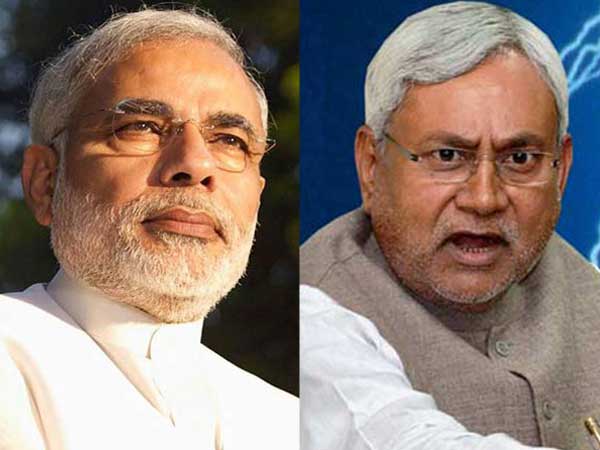
Is coalition era over in India? Well, 'Modi vs Nitish' story will decide that

But is this a permanent end to the coalition politics in India? Are we back to the days of single-party dominance?
Next 5 years will decide the course of Indian politics
It
is
difficult
to
make
any
prediction
on
the
political
future
of
the
nation.
For
how
many
would
have
thought
that
the
once
mighty
Congress
would
be
reduced
to
just
44
seats
in
the
Parliament?
The
answer
to
whether
India
returns
to
the
era
of
coalition
politics
is
partially
hidden
in
the
next
five
years.
If the Narendra Modi government, which is about to take up the responsibility, steers the nation towards a satisfactory goal till 2019 and repeat its poll performance of 2014, the chances of fragmented mandate regaining relevance will be lesser. But if there is an opposite story (like what had happened to the Indira Gandhi government in 1977 and Rajiv Gandhi government in 1989) then there is every possibility of a reverse consequence.
However, as this author believes, the performance of the Modi government in the next five years can will explain whether India can indeed return to the days of the coalition era.
The performance of the Modi government in the next five years will be challenged by the old school of applied politics in India and the winner of this tussle will determine the future of coalition politics in this country.
The tussle between economic development and social empowerment
To understand this tussle, we can take up the cases of post-May 16 Modi and Nitish Kumar.
Modi and Kumar, once part of the same alliance and considered two of the best chief ministers in the country with their respective models of development, embarked on two contrasting journeys post May 16, 2014.
If Nitish has empowered a Mushahar man, Modi must empower that entire community
While Modi found himself promoted to become the prime minister of the country, Kumar decided to quit the CM's post for his own political game. Modi spoke about taking forward his own legacy of a pro-development administrator while Kumar chose to focus more on his own style of politics, which is characterized by the idea of social empowerment, to ensure that he returns to prominence during the next assembly election in Bihar in 2015.
The contradictory games of Modi and Nitish
Now,
the
future
of
coalition
politics
in
India
will
be
decided
by
the
victory
of
either
of
the
two
contradictory
styles
of
Modi
and
Kumar.
Just
like
the
magic
he
produced
in
the
Lok
Sabha
election
by
achieving
a
kind
of
electoral
homogenization
in
states
like
UP
and
Bihar
where
the
socio-economic
forces
are
extremely
complicated,
if
Modi
can
repeat
the
same
in
terms
of
economic
development,
then
coalition
politics
as
a
negative
trait
of
our
democracy
can
be
dealt
with
decisively.
Nitish
politically
empowered
a
Mushahar
representative,
Modi
should
economically
empower
that
community
But if it doesn't materialise, then it will be a big boost to the politics of appeasement of the Nitish Kumars and Lalu Prasads in the garb of secularism and they will cash in on the effects of a non-uniform development. Kumar has already made a very backward community leader as the chief minister of Bihar to play his card. It is now the turn of Modi to ensure that the community of Jitan Manjhi, a Mushahar (those who eat rats), gets the share of national development. This way, the advantages of the narrow politics of appeasement can be nullified.
In this way, Modi will have to cater to the needs of the complex socio-economic realities in key states where electoral stakes are high and an approach of overall development, not specific to a community, can bring the desired results for the new regime. One believes somebody has to repeat economically what Amit Shah did politically in a state like UP to get the BJP 71 seats.
BJP must be careful of not going the Congress's way
The Congress had lost the plot in Indian democracy because it didn't prioritise decentralization since the family rule took over and soon the grassroots pillar of the umbrella organization collapsed, allowing regional leaders to cash in on the economic backwardness by calling for social and political empowerment. This pattern gradually led to the strengthening of the coalition politics in India at the expense of a weak Congress system.
Today, the BJP has emerged as an alternative to the Congress that had once propagated inclusivism in the true sense and it has an enormous task in its hand to ensure that the social fault lines are eroded effectively so that the politics of dividing vote-banks meets its end. Democracy definitely signifies empowerment but that empowerment should be economic to begin with so that it doesn't put the nation's stability at peril.


 Click it and Unblock the Notifications
Click it and Unblock the Notifications

































